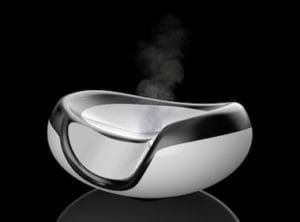
Dupilumab Reduced Severe Asthma in Children
The biologic drug dupilumab markedly improved lung function while also reducing severe asthma attacks in children with uncontrolled, persistent asthma, according to the results of a Phase 3 clinical trial.
The trial included over 400 children ages 6 to 11 who had evidence of uncontrolled moderate-to-severe asthma that involves allergic inflammation. Their asthma was uncontrolled despite taking controller medications such as inhaled corticosteroids. Children with this degree of asthma continue to experience significant symptoms, including coughing, wheezing, trouble breathing, and may require emergency treatment for asthma attacks.
Over the course of a year, the children were given either a just under-the-skin dupilumab injection every two weeks, or a placebo injection. All of the children continued to take their controller medications – either an inhaled steroid alone, or an inhaled steroid and a second controller medication.
After two weeks, for those on the active drug, lung function began to improve. The children who got dupilumab also had up to 65 percent fewer severe asthma attacks over the course of the year.
Dupilumab, sold under the brand name Dupixent, is being developed by Regeneron Pharmaceuticals Inc. and Sanofi. The companies plan to request FDA approval in the first quarter of 2021 for this pediatric disease group.
“Children with uncontrolled, moderate-to-severe asthma often struggle to breathe, largely because of their impaired lung function, and this can have a serious impact on their quality of life,” said Dr. John Reed, global head of research and development at Sanofi, in a statement. “Dupixent is the only biologic shown in a controlled Phase 3 trial to improve lung function in children, which is generally consistent with results seen in the adolescent and adult trials.”
Biologic Fares Well in EoE Study
In the results of another Phase 3 trial, dupilumab also improved swallowing ability in children ages 12 and older and adults with eosinophilic esophagitis (EoE). EoE is a chronic, allergy-based inflammatory disease of the esophagus. It is often triggered by food and can cause symptoms such as trouble swallowing, chest pain and food impaction.
In the trial, 81 patients with EoE received dupilumab weekly for six months, or a placebo. After one month, patients reported a significant improvement in the ability to swallow, and they continued to improve throughout the six months.
The trial also found reduced inflammation in the esophagus, and lower eosinophil counts. Eosinophils are immune system cells that build up in the esophagus of people with EoE.
“The results from this trial show dupilumab significantly improved both patients’ ability to swallow as well as structural abnormalities in the esophagus, by targeting type 2 inflammation to help reverse tissue damage and scarring that usually worsens over time,” said the study’s principal investigator, Dr. Evan Dellon, a professor of gastroenterology and hepatology at the University of North Carolina School of Medicine.
In September, the FDA granted breakthrough therapy designation to dupilumab for the treatment of patients 12 years and older with EoE.
U.S. FDA has previously approved dupilumab to treat moderate-to-severe eczema in adults and children ages 6 and up, when medications such as topical steroids aren’t enough to keep their itchy, inflamed patches of skin at bay. Dupilumab, a lab-created monoclonal antibody, is also approved to treat uncontrolled, moderate-to-severe asthma in adults and teens.
Developing a New Device for Asthma Meds

to deliver asthma medication.
What if the amount of medication delivered by your asthma inhaler could be personalized specifically to you? Researchers in Australia are trying to do just that, with a device that varies the size of the droplets dispensed according to the patient’s size and degree of disease.
Standard asthma inhalers, known as metered dose inhalers, deliver a set dose of asthma medication, in a set droplet size. Research has shown that an improper inhaler technique can cause much of the medication to end up in the back of the throat, instead of in the lungs. A spacer helps, but hand strength, coordination and the ability to precisely time the inhale with dispensing the medication can still affect how much drug actually gets into the airways.
Scientists at Monash University in Melbourne have applied for a patent on a new, hand-held device called the PALM (Personalized Aerosol Loading and Management) that they hope will improve the delivery of asthma medications.
The PALM device is in the early stages of development. But according to the developers, the device monitors the user’s inhalation speed to determine the optimal droplet size for medication delivery.
When droplets are too large, medication tends to be deposited in the back of the throat, according to the researchers, who received a $725,000 Australian government grant to develop the device. The smaller the droplets, the deeper into the branches of the airways they can reach.
“A key advantage of PALM is that it allows the droplet size to be tuned, effectively controlling where along the respiratory tract the drug will be deposited,” says Tuncay Alan, PhD, a senior lecturer in the university’s Department of Mechanical and Aerospace Engineering. “This is a significant improvement over existing devices.”
Doctors can dial in the dosage amount and droplet sizes according to the patient’s personal needs. The device fits into the palm and a patient holds it over the mouth. Soft material helps to create a tight cushion against the face, while the medication is automatically delivered at the optimum time during an inhalation. Get updates on this device’s development here.
Related Reading:
FARE Retreat: Experts Explore Food Allergy Treatment, Testing
Biologic Drug Reduced Flare-Ups for Patients with Difficult Asthma





